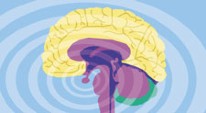 The International Journal of Neuropsychopharmacology
The International Journal of Neuropsychopharmacology
Edited by: - B. Lerer
It was a slow journey from the Hippocratic humours (black bile, phlegm, blood and yellow bile) to Otto Loewi's 1924 discovery that synaptic transmission from the vagus nerve to the heart muscle was chemically controlled — the first of many neurotransmitter substances (acetylcholine) had been found.
A slightly longer and more tortuous journey led to the conjecture that too much or too little of various neurotransmitters and other neuroactive chemicals was implicated in many neurological and psychiatric diseases. This was reinforced by the development of animal models of these diseases. The upshot was the emergence of a new discipline — neuropsychopharmacology — that gave substance to the claims of Pierre-Jean-Georges Cabanis, an eighteenth-century physician and ideologue, who had notoriously argued that the brain digests impressions and secretes thought.
The International Journal of Neuropsychopharmacology covers the entire range of topics that plausibly fall within the domain of its title. A fairly rapid publication schedule combined with high-quality papers make this journal essential reading for all basic and clinical scientists concerned with the biochemistry of the nervous system in health and disease. Thus far, the largest number of research papers in the journal deal with the biochemistry of major depression and schizophrenia. But the wider scope of neuropsychopharmacology is reflected in contributions on movement disorders, mania, anxiety, aggression and pain.
Discussion is facilitated by excellent review articles and a timely trends and perspectives section. The latter feature has included a fine exposition of the health implications of cannabis consumption. Relevant aspects of molecular genetics are also well covered, including a running review of the uses of knockout mice (although neuroscientists who are puzzled by how studies of rats can illuminate schizophrenia will doubtless remain so).
Watch this space. As the editorial team write in their introduction to the journal: “tenets held basic to contemporary neuropsychopharmacology could turn out to be substantially overemphasized, unacceptably simplistic or even incorrect, in the relatively near future.”
Author information
Authors and Affiliations
Rights and permissions
About this article
Cite this article
Marshall, J. Psychic secretions. Nature 407, 293 (2000). https://doi.org/10.1038/35030217
Issue Date:
DOI: https://doi.org/10.1038/35030217

